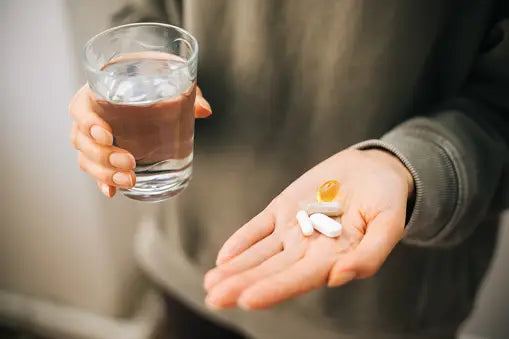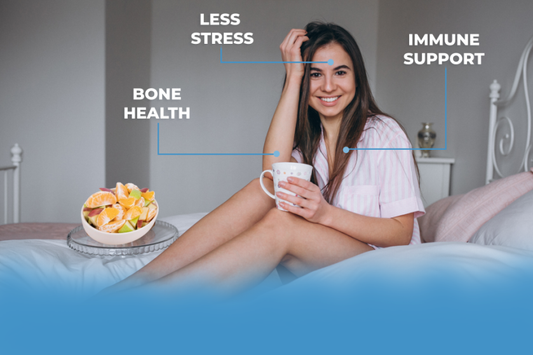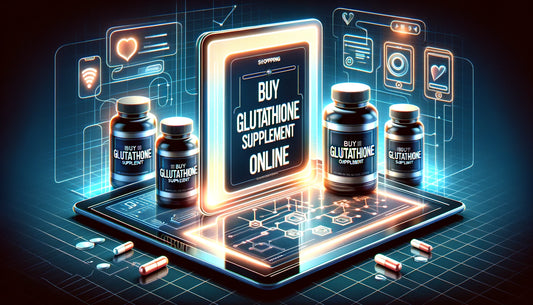

Infinite One: B-Complex Supplement Review
Table of Contents
B-Complex Supplement Review
B-complex vitamins are needed for a healthy liver, skin, hair, and eyes. They also help the nervous system function properly and are required for proper brain function. All B vitamins are water-soluble, meaning that the body does not store them. The B Vitamins are thiamine (B1), riboflavin (B2), niacin (B3, also called nicotinamide or nicotinic acid amide), pantothenic acid (B5), pyridoxine (B6), biotin (B7), folic acid or folate (B9) and cobalamin (B12). Food sources of Vitamin B are both plant and animal. Vitamin B deficiency can lead to the emergence of many diseases.
A healthy diet can provide all the B Vitamin necessary to keep the body healthy, easily reaching the recommended dietary intakes. However, many people have an unbalanced diet, low in healthy foods (fruits, vegetables, meat, fish, cheese, eggs, legumes, and cereals), meaning that they do not get the recommended amounts.
Thiamine (B1)
Vitamin B1, also known as thiamine, is named B1 because it was the first B vitamin discovered. It is one of the eight essential B vitamins that help the body convert food (carbohydrates, fat, and protein) into energy. These vitamins are vital for proper functioning of the central and peripheral nervous system. The human body does not produce endogenous thiamine; therefore, it must be ingested. Various dietary sources of thiamine include meat (e.g., pork, poultry), whole grain cereals (e.g., brown rice and bran), nuts, dried beans, peas, and soybeans. Breads and cereals are commonly fortified with thiamine. A thiamine deficiency can cause weakness, chronic fatigue, heart complications, psychosis, and nerve damage. Like other B-complex vitamins, thiamine is sometimes called an “anti-stress” vitamin because it may strengthen the immune system and improve the body’s ability to withstand stressful conditions.
Riboflavin
Riboflavin or its derivatives are found in a wide variety of foods, although milk and dairy products make a particularly significant contribution to the riboflavin intakes of populations in Western countries. Cereals, meats, and fatty fish are also good sources of riboflavin, and certain fruit and vegetables, especially dark-green vegetables, contain reasonably high concentrations. Riboflavin deficiency is endemic in populations consuming little milk or meat products. A decline in the consumption of milk and dairy products in Western countries may contribute to the poor riboflavin status reported in sections of the population, particularly young people. Subclinical riboflavin deficiency may contribute to increased concentrations of plasma homocysteine, with an associated increased risk of cardiovascular disease. It may also be related to impaired handling of iron and night blindness. Current research of public health relevance relates to the importance of riboflavin as a factor in protecting against cardiovascular diseases and cancers and in vision.
Niacin (B3)
Niacin, also known as “nicotinic acid,” is found in red meat, chicken, turkey, beans, and grains. It is a required nutrient and a member of the B vitamin family. Niacin plays a crucial role in energy production, gene expression, and hormone synthesis. Humans cannot exist without it. Niacin is found in some foods, including dairy products, lean meats, poultry, fish, eggs, nuts, whole grains, and enriched breads and cereals. In medicine, it is used as a drug to lower high blood pressure and cholesterol.
Pantothenic acid (B5)
The health benefits of Vitamin B5, also known as Pantothenic Acid, include the alleviation of conditions like asthma, hair loss, allergies, stress and anxiety, respiratory disorders and heart problems. Pantothenic acid is found in some foods, including meat, fish, eggs, milk products, legumes, whole grains, yeast, and vegetables. A nutrient that is needed by the body to make energy from food and to make red blood cells, certain hormones, and the fats found in cell membranes and tissue surrounding nerves. B5 vitamins are crucial for maintaining the health of the nervous system. Aside from being critical in manufacturing red blood cells, Vitamin B5 also plays a part in producing sex and stress-related hormones produced in the adrenal glands. Vitamin B5 has the reputation of reducing stress and other serious mental problems like anxiety and depression. It does this by regulating the hormones responsible for causing these mental conditions.
Pyridoxine (B6)
Vitamin B6, or pyridoxine, is an important component of the coenzyme PLP, which metabolizes amino acids.224-227 Because of its amino acid transfer ability, the body can produce non-essential amino acids from available amino groups, as well as metabolize protein and urea. Vitamin B6 is essential because of its participation in more than 140 enzymatic reactions, including protein metabolism, conversion of tryptophan to niacin, and neurotransmitter function, among others.224
Found in foods such as eggs, brewer’s yeast, carrots, chicken, fish, brown rice, whole grains, and cabbage, vitamin B6 (along with B12 and folic acid) plays a beneficial role in maintaining already healthy homocysteine levels within normal range.
Biotin is a member of the water-soluble B-complex family, normally only required in minute amounts. Biotin, or Vitamin B7, is needed a for healthy metabolic, nerve, digestive and cardiovascular functions. Most people get the biotin they need from eating a healthy diet, but there have been many claims that getting more biotin can regulate your blood sugar, promote healthy hair, skin, and nails, and help pregnant moms have healthier babies.
Folic Acid (B9)
Folic acid (and folate) is a water-soluble vitamin B. Folate occurs naturally in food, and folic acid is the synthetic form of folate. Food sources include dark leafy greens, cereals, pasta, beans, mushrooms, organ meat, orange juice, tomato juice and more. Brussels sprouts are among the foods with the highest levels of folate.Folic acid is frequently used in combination with other B vitamins in vitamin B complex formulations.
Folic acid helps your body produce and maintain new cells and also helps prevent changes to DNA that may lead to cancer. As a medication, folic acid is used to treat folic acid deficiency and certain types of anemia (lack of red blood cells) caused by folic acid deficiency. Isolated folate deficiency is uncommon; it usually coexists with other nutrient deficiencies because of its strong association with poor diet, alcoholism, and, sometimes, malabsorptive disorders. Megaloblastic anemia, which is characterized by large, abnormally nucleated erythrocytes, is the primary clinical sign of a deficiency of folate or vitamin B12.
Vitamin B12
Vitamin B12 is a water-soluble vitamin that is naturally present in some foods, added to others, and available as a dietary supplement and a prescription medication. Vitamin B12 exists in several forms and contains the mineral cobalt, so compounds with vitamin B12 activity are collectively called “cobalamins.”
Vitamin B12 is naturally found in animal products, including fish, meat, poultry, eggs, milk, and dairy products. Vitamin B12 is not present in plant foods, but fortified breakfast cereals are a readily available source of vitamin B12 with high bioavailability for vegetarians. Some nutritional yeast products also contain vitamin B12. Fortified foods vary in formulation, so it is important to read product labels to determine which added nutrients they provide. Vitamin B12 is found only in foods of animal origin. There are no naturally occurring bioactive forms of Vitamin B12 from plant sources. Some plant foods contain added Vitamin B12.

















